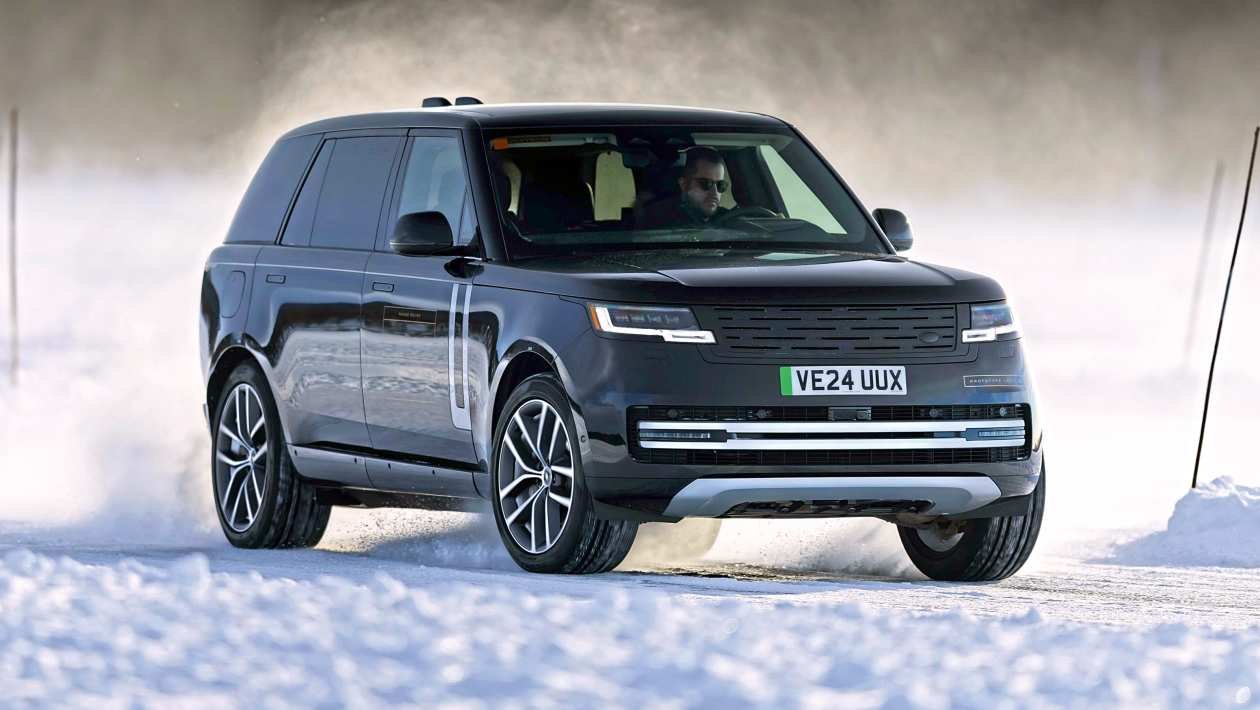The good news is that a BEV powertrain isn’t as complex to package as an ICE engine, meaning there’s no negative effect on other off-roading requirements. Fording depth, approach and ramp angles, and ground clearance are the same as, or better than, the regular car in most driving modes, Müller promises. And given that the existing PHEV models have a kerbweight of almost three tons, the EV’s few extra hundred kilos shouldn’t cause too much alarm for the air suspension.
Visually, there’s almost nothing to distinguish the new EV model from the existing Range Rover. This is because it doesn’t use a dedicated electric platform, but rather a compromised hybrid architecture. Yet the company has – credit where credit is due – gone big with the drivetrain.
Neither a BMW iX nor a Mercedes EQS, and certainly not the Audi Q8 e-tron, can compete when Müller reveals the initial key performance data. The two e-motors produce 542bhp and 850Nm of torque, making the electric Range Rover the biggest powerhouse in the brand’s line-up this side of the performance SV model.
It runs on a cutting-edge 800-volt electrical system with a 117 kWh battery pack, which should enable a range of “well over 310 miles”. Charging is possible with 22kW AC and up to 350 kW DC. Just like a Porsche, it can bank charge by ‘virtually’ splitting the batteries into two 400V systems, helping it to top up faster than much of its main competition.
The only way you can tell that the Range Rover wasn’t developed around electric drive is the absence of a frunk, because the space under the bonnet is still packed with hardware. However, one could still be carved in that space – after all, the car is still another nine months away from going on sale – which would make for a nice small storage compartment for the cable.
Yet Müller, Becker, and their team still have much to do, because even if they can hang up their winter jackets, the development program continues. It’s now time to head back into the heat of the desert, because the battery-powered drive still has to prove that it’s in no way inferior to combustion engines.
Already, though, the forthcoming electric Range Rover feels confident, silky, quiet and incredibly powerful. The electric powertrain feels like a perfect fit for such a vehicle, where luxury is always more important than pure performance.
And because a Range Rover always has a bit of Defender in it, there are no compromises, even off-road. This will be an expensive affair, though, with production models almost certainly costing more than £120,000. But this is unlikely to bother customers. After all, they’re already used to paying high prices for what’s always been – and on this account will continue to be – a national icon.
Click here for our list of the best luxury electric cars…




